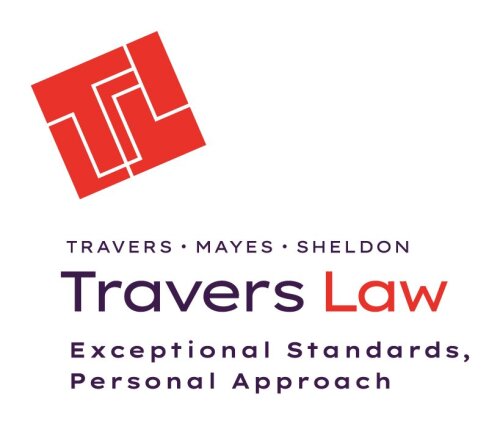Best General Litigation Lawyers in Waterloo
Share your needs with us, get contacted by law firms.
Free. Takes 2 min.
List of the best lawyers in Waterloo, Canada
Canada General Litigation Legal Articles
Browse our 1 legal article about General Litigation in Canada written by expert lawyers.
- How to Claim Personal Injury Damages in Ontario Canada
- Victims have two years from the date of the accident to initiate a lawsuit against the at-fault driver in Ontario. Ontario uses a hybrid system where you receive immediate "no-fault" benefits regardless of who caused the crash, while also retaining the right to sue for additional damages. To successfully sue... Read more →
About Litigation Law in Waterloo, Canada
Litigation is the formal process of resolving disputes through the court system. In Waterloo, Ontario, litigation encompasses a wide range of legal matters, from civil disputes such as contract disagreements, personal injury, and property claims to commercial and employment issues. The process is governed by both federal and provincial laws, with the Superior Court of Justice in Ontario overseeing most significant litigation matters. Whether you are an individual, a small business, or a large corporation, understanding the legal landscape of litigation in Waterloo is key to protecting your rights and interests.
Why You May Need a Lawyer
Litigation can be complex and stressful, especially if you are unfamiliar with legal procedures. Common scenarios where you might need a lawyer in Waterloo include:
- Being sued by another individual, company, or organization
- Seeking compensation for personal injury or property damage
- Enforcing contracts or defending against contract disputes
- Handling estate or inheritance disagreements
- Defending against a wrongful dismissal or employment claim
- Facing a commercial dispute with a business partner
- Dealing with real estate or construction disagreements
- Requiring representation for landlord and tenant matters
Legal representation ensures that your interests are properly advocated, paperwork is accurately filed, deadlines are met, and you fully understand your options.
Local Laws Overview
Litigation in Waterloo is mainly governed by Ontario’s Rules of Civil Procedure, which outline the steps for bringing, defending, and resolving legal actions before the courts. Key aspects include:
- Jurisdiction: Most civil matters are heard in the Ontario Superior Court of Justice.
- Small Claims Court: For disputes under $35,000, cases proceed through Small Claims Court, which has simplified procedures.
- Limitation Periods: Most civil claims must be started within two years of discovering the issue, with some exceptions.
- Mandatory Mediation: Some cases require parties to attempt mediation before going to trial.
- Costs: The losing party in litigation may be ordered to pay part of the winning party’s legal costs.
- Alternative Dispute Resolution: Mediation and arbitration are strongly encouraged to save time and costs.
- Access to Justice: Ontario courts strive to ensure fair and equal access, including options for self-representation with available support resources.
Frequently Asked Questions
What types of cases are handled through litigation in Waterloo?
Litigation covers civil disputes such as contract breaches, property issues, personal injuries, employment matters, business conflicts, and more.
How do I start a lawsuit in Waterloo?
You or your lawyer must file a statement of claim or notice of action at the appropriate court. The process may vary based on the claim’s value and nature.
Should I hire a lawyer for litigation?
Legal representation is highly recommended as lawyers understand the procedural rules, can evaluate your case, advocate effectively, and help navigate complex documentation.
What is Small Claims Court, and when is it used?
Small Claims Court deals with civil disputes involving amounts up to $35,000 and is designed to be more accessible and efficient for individuals and small businesses.
How long does litigation usually take?
The timeline varies greatly, but many cases take several months to a few years depending on complexity, court schedules, and whether cases settle before trial.
What is mediation, and is it required?
Mediation is a process where a neutral third party helps disputing parties seek a settlement. In some litigation cases, mediation is mandatory before trial in Ontario.
How are legal costs determined?
Legal costs depend on case complexity, lawyer rates, and the time involved. Generally, the losing party may have to pay a portion of the winning party’s legal fees.
Can I represent myself in court?
Yes, self-representation is allowed, but the processes can be challenging without legal training. Free resources and duty counsel may be available to assist you.
What happens if I miss a court deadline?
Missing a deadline can harm your case, including possible dismissal or losing the right to respond. It is important to comply with all court timelines.
Are there alternatives to going to court?
Yes, mediation and arbitration are common alternatives that can be faster and more cost-effective. Many disputes are resolved before reaching trial.
Additional Resources
- Ontario Ministry of the Attorney General - Information for court users and updates on procedures
- Law Society of Ontario - Lawyer referral service and information for the public
- Legal Aid Ontario - Assistance for those who qualify based on income or situation
- Waterloo Region Community Legal Services - Local, free, or low-cost legal support for eligible residents
- Ontario Courts official websites - Practice directions, forms, and schedules for Superior and Small Claims Courts
- Local law libraries - Access to legal information and research assistance
Next Steps
If you believe you require assistance in a litigation matter in Waterloo:
- Assess the nature and urgency of your legal issue.
- Gather all relevant documents and evidence related to your dispute.
- Contact a qualified litigation lawyer in Waterloo to schedule a consultation.
- If affordability is a concern, inquire about legal aid or community legal services in the region.
- During your consultation, discuss your goals, review possible strategies, and clarify costs.
- Follow your lawyer’s advice on filing deadlines, settlement discussions, and court appearances.
- Stay organized and proactive throughout the litigation process to best advocate for your interests.
With the right guidance and preparation, you can navigate litigation more confidently and protect your legal rights in Waterloo, Canada.
Lawzana helps you find the best lawyers and law firms in Waterloo through a curated and pre-screened list of qualified legal professionals. Our platform offers rankings and detailed profiles of attorneys and law firms, allowing you to compare based on practice areas, including General Litigation, experience, and client feedback.
Each profile includes a description of the firm's areas of practice, client reviews, team members and partners, year of establishment, spoken languages, office locations, contact information, social media presence, and any published articles or resources. Most firms on our platform speak English and are experienced in both local and international legal matters.
Get a quote from top-rated law firms in Waterloo, Canada — quickly, securely, and without unnecessary hassle.
Disclaimer:
The information provided on this page is for general informational purposes only and does not constitute legal advice. While we strive to ensure the accuracy and relevance of the content, legal information may change over time, and interpretations of the law can vary. You should always consult with a qualified legal professional for advice specific to your situation.
We disclaim all liability for actions taken or not taken based on the content of this page. If you believe any information is incorrect or outdated, please contact us, and we will review and update it where appropriate.











